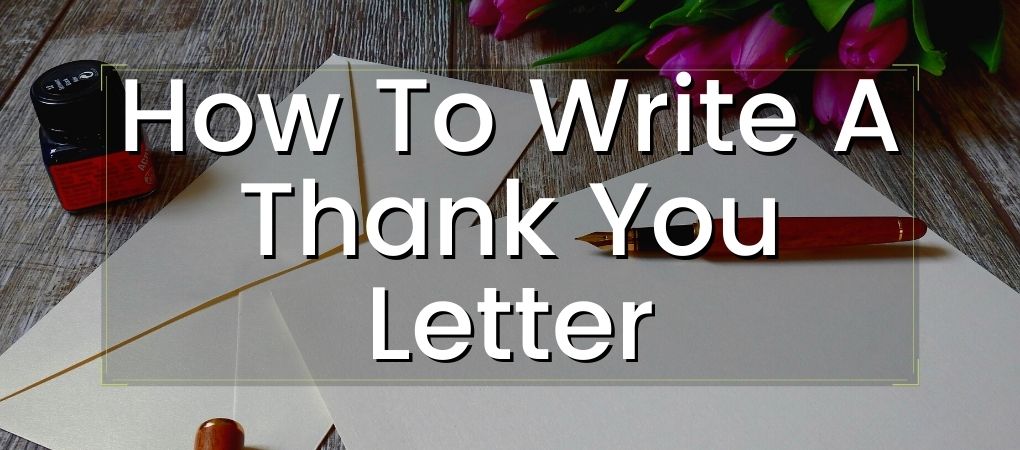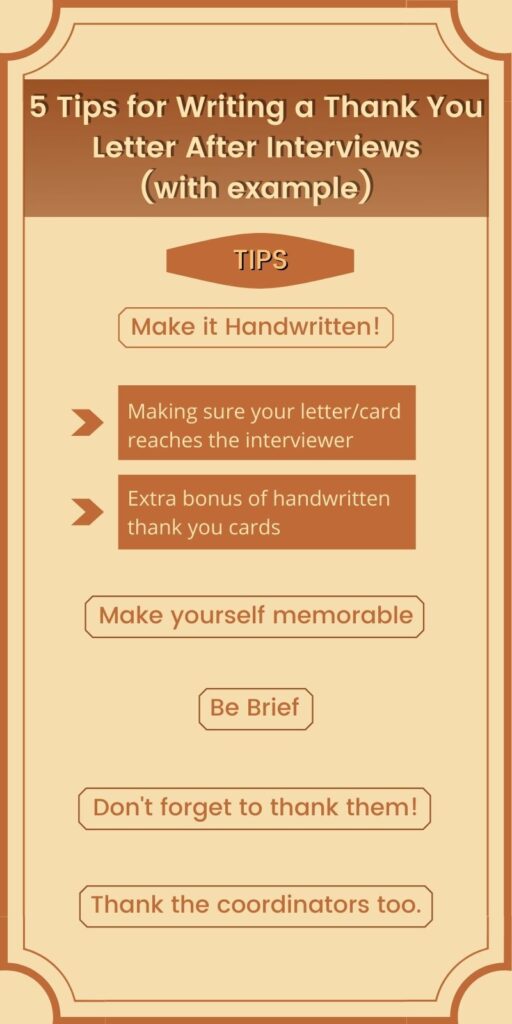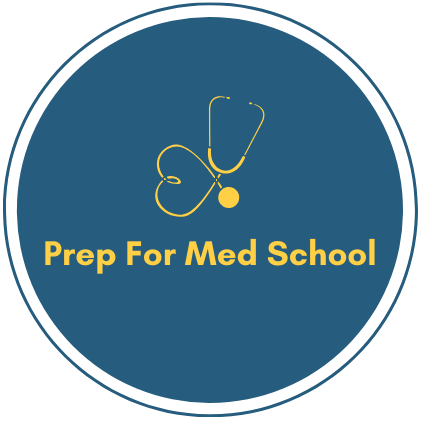5 Tips for Writing a Thank You Letter After Interviews (with example)

After your medical school interview, you thanked all the interviewers, the residents, the administrators for their time, etc. So why is it important to consider the thank you letter?
Medical school programs must filter through tons of applicants – applicants with identical test scores, academic performances, and extracurriculars. Your job is to differentiate yourself, in any way possible. What better way than to dedicate an hour or two to craft a letter to the admissions office?
Here are some tips on how to make your thank you letter memorable, along with an example.
Crafting that Perfect Thank You Letter for Medical School Admissions
Make it Handwritten!
Handwritten vs. E-mail? The age-old debate – there are pros and cons for both. E-mail – it’s easy, simple, and there’s no mystery on whether it reaches the recipient.
But, handwritten? Think of the impact a personalized card would have when your interviewer receives it on their desk.
Making sure your letter/card reaches the interviewer
How do you make sure it reaches the interviewer’’s desk. Here are some ways:
- Have your thank you cards ready before you head to the interview.
- Ask the secretary/head of administration what the best address is to send your thank you card.
- Prepare yourself by having thank you cards in your arsenal. Write the majority of the thank you card, and add a little extra after your interview so you can finish it in a timely manner.
- Bring stamps! Then you can easily throw them in a mailbox that is close to the medical school, ensuring that they’ll reach the interviewers in record timing.
Extra bonus of handwritten thank you cards
Another plug for handwritten cards – I have seen thank you cards lingering in admissions folders. Make it easier for the admissions office to remember your name – don’t depend on the interviewers to print out that email you wrote.
Make yourself memorable.
Translation – Reiterate a topic that was mentioned in the interview to jog the interviewer’s memory of you. If there was a particular subject that made you more interested in the program, tell the interviewer why that was so. Keep this portion of your letter to 1-2 sentences.
Be Brief.
You’ve had your chance to shine at the interview. Don’t write a novel parroting why you want to go to that particular medical school. Think of the thank you card as another way to remind the medical school that you are still interested. Limit yourself to a paragraph at most – about 5-6 sentences maximum total.
Don’t forget to thank them!
As much as you want to gush about the medical school and express interest, don’t forget to thank the interviewer! Show understanding that they had to take time out of their schedules to talk to you, and express gratitude for letting you interview for their school.
Thank the coordinator too.
Being a medical school admissions coordinator is hard work. They answer all your questions – responding to your emails and phone calls, and make sure everything goes smoothly on interview day. Make sure to acknowledge their efforts and send them a thank you card as well.
Example Thank You Letter After Medical School Interview
Here’s an example of a good thank you letter:
Dear Dr. _______,
My name is _______ and I interviewed at your program last week. Thank you for taking the time to discuss the extracurriculars that were available – it helped me develop a better picture of the program’s culture. It was also nice to see the large proportion of the student body actively participating in these extracurricular activities, reflecting how close-knit the students seem to be. I can definitely see myself being very happy and supported in this environment, and I wanted to further express my interest in your program.
Conclusion
There’s a fine balance between being annoying and being a presence to the admissions office. I think it’s completely OK to reach out one more time before the decision deadline. Angle yourself to have something to say, though! Join a nonprofit organization, invest your free time in a new volunteering opportunity, or start working in a research laboratory. It also demonstrates that you are not one for idle hands and that you will be a medical student that is not afraid to work hard!


Leave a Reply